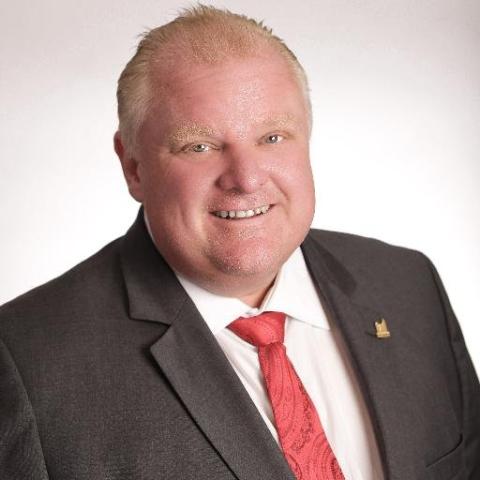
Samaritanmag spoke with Dr. Christine Williams, chief mission officer and scientific director at the Canadian Cancer Society to explain what’s unique about Ford’s illness and the need to do more research on rare tumours.
What kind of cancer did Rob Ford have?
Liposarcoma is a tumour that develops in the connective soft tissues, so tissues like muscle, tendons, blood vessels or fat. It’s a fast growing type of tumour. There are different types of liposarcomas and the type that Mr. Ford had is called pleomorphic liposarcoma. It’s the rarest of the four sub-types.
Is there any kind of cure?
There is treatment, but in most cases it’s not curative, it’s about extending life. There’s a combination of chemotherapy and surgery and radiation depending on the tumours and how it presents. In Mr. Ford’s case I believe he had chemotherapy to try to reduce the bulk of the tumour to make it smaller, and then had surgery after that. Then there was additional chemotherapy.
He was diagnosed just 18 months ago – what is the survival rate?
The number of people alive five years after being diagnosed is about 56 percent so a little bit more than half. And this is based on U.S. data because it’s such a rare tumour that we don’t have very good Canadian data. But the 10-year survival rate is lower, it’s about 39 percent.
In 2011 Mr. Ford had a CT scan that showed no evidence of cancer, but then this turned up, fully blown, less than two years later. Was the tumour undetected or did it just grow very fast?
I think both. It was probably too small to be detected when they did the original exam, but it is known as a fast growing tumour so it does develop quickly. It’s largely asymptomatic and it often spreads so that’s an unfortunate combination of factors because people are often late finding out that it’s there. And when they do find out that there’s a tumour it’s growing quickly and in multiple sites.
Does it make any difference if you catch it early?
Generally, for cancer, yes. The earlier you can catch tumours — the smaller the actual tumour — the easier it is to kill. The spreading of tumours is often what makes them difficult to treat.
If you remove an evident early-detected tumour with this particular cancer, is that any kind of assurance that it’s not going to spread?
No. This particular type of tumour has a high risk of recurrence. It appears to be difficult to remove all of the tumour and it probably is so small in some cases that it’s impossible to pick up and remove in surgery. Patients with liposarcoma do have a high risk of the cancer returning.
Is it true that you don’t feel the liposarcoma tumours growing until they become unmanageably big?
Yes. I gather it often doesn’t have a lot of symptoms associated with it, and because it’s in [deep] connective tissue, you may not have something like a breast lump before you really feel a physical abnormality. I think, in this case, there’s nothing to feel and it doesn’t come with particular symptoms.
Did Mr. Ford’s lifestyle, which famously included abusing liquor and drugs plus obesity, contribute to the disease?
There is no evidence for that. This cancer isn’t very well studied because it’s so rare, but as far as we know there are no risk factors associated with diet or lifestyle that lead to [it].
Are there any specific charities or foundations that target this cancer that people can donate to?
I have not heard of any, but the larger charities, like the Canadian Cancer Society, fund research into all cancers. You can target donations. If people wanted to give to this particular cancer at the Canadian Cancer Society, they can target donations that way.
What can be done to increase survival rate?
One thing this brings up is the need to do research on rare tumours. Just because there are few people affected by them, doesn’t mean that it isn’t critically important to understand them better. I think one thing that’s come up with Mr. Ford’s diagnosis is that we don’t know very much about this particular tumour. As you know, cancer is not one disease; it’s at least 300 diseases. We tend to classify it by either the genetics behind what causes it or the place in the body that it arises. In the case of liposarcoma, we don’t know very much about it so it certainly brought up a gap in our understanding. We need to do more to treat this.
Air Jordan